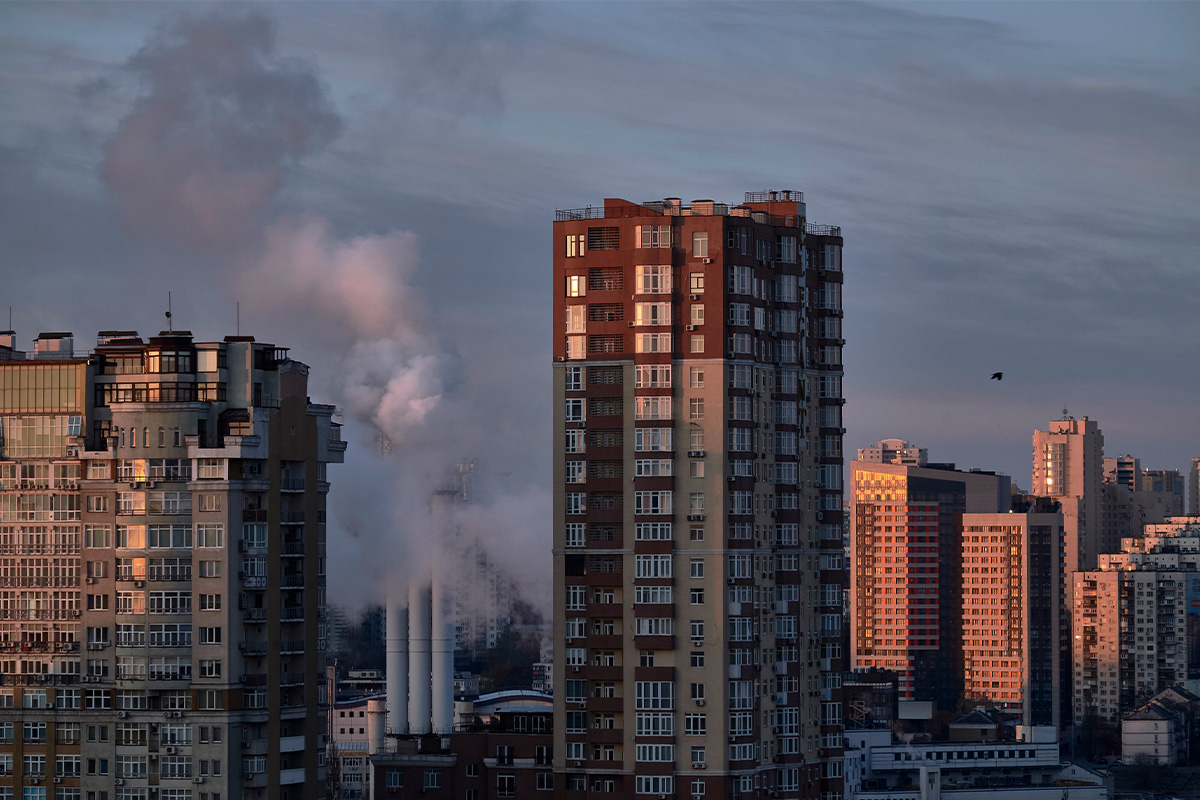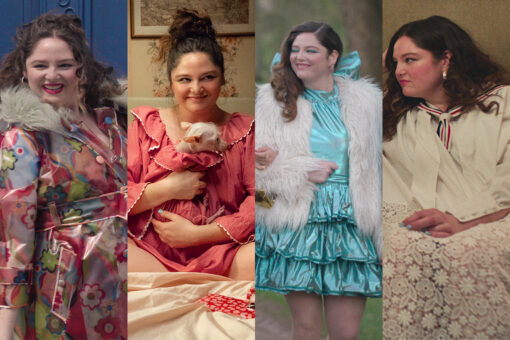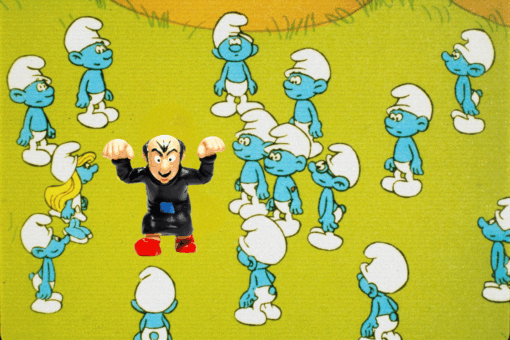The other night, I was sitting in my babushka’s bedroom, listening to the news on the Russian television network my family regularly watches, reports streaming in about the country she came from being primed for war. And though I’m only partially fluent in Russian, I doubted I would have understood the news better if it was in English.
As someone born and raised in America, I have never once stepped foot in Ukraine, where my parents were raised — Brighton Beach, Brooklyn being the closest reference to the country of my family’s heritage. As such, I’ve developed what many first and later generation kids of immigrants develop: semi-interest and indifference towards the politics of a country we’ve never called home.
Yet, sitting with my grandmother in her kitchen, keeping her company in an effort to keep down her anxiety as she called friends and relatives who still lived in Ukraine to see if they were safe and reading Twitter accounts of people fleeing the country, I found myself in a type of guilt-filled nervousness at my connection and disconnection towards a place that I could have easily been in myself.
There are certain moments in life when you can imagine yourself living in a different world.
One of my glimpses of this was when I went overseas on a trip without my family for the first time to Israel and stopped at a playground that could have looked like any other in Brooklyn if it weren’t for the Hebrew letters on the spinning blocks feature of the playground’s equipment. In that moment, watching those kids from another country play, I was struck with the realization that had my parents made a different choice in deciding on the zip code of where to live after they immigrated from Kyiv, I could have had an entirely different life altogether.
Ultimately, their choice to move from Kyiv was made for a number of reasons, which I will never truly understand the scope of, uprooting themselves from a country that had been their family’s residence for generations. Ukraine was by no means perfect, but it’s still the country of my parents’ roots, of my roots.
So now, watching the news and scrolling social media to read accounts of Ukrainians who are desperately fleeing the country, leaving behind everything familiar in hopes of avoiding violence and bombing, it feels like the roots and the forest are burning.
And quite literally, too.
There is no good explanation for this. No justifiable reason for why a country full of peaceful people, who have no interest in war, is being invaded.
All over the world, there are mixed reactions to what is happening right now, from news outlets trying to give the play-by-play while dealing with political censorship and digital trolls, to non-Ukrainians joking about the situation, claiming to use cheap humor as a way of dealing with a trauma they are not personally involved in and have no stakes to.
Meanwhile, social media has allowed us all to witness the live accounts from the actual people being affected, and they break my heart. Accounts of people unable to sleep at night because of the sounds of military strikes and explosions. Of people having their brothers and husbands pulled away to be involuntarily drafted into the Ukrainian military. Of pictures of kids as young as my 6-year-old nephew, inheriting a violent world they never deserved, as no child does. All of which is happening during a pandemic no less.
Some of the comments that get to me the most are the innocuous-seeming ones, the comments of those sharing what they love about Ukraine and Ukrainian culture. Like how the colors of the Ukrainian flag symbolize blue skies above fields of golden wheat. Or how Ukraine is known as the “breadbasket of Europe,” which as anyone who has ever tasted Baton Sihivskiy would know to be damn true. And there are those things outsiders who are only familiar with Cold War stereotypes would never know, like how Ukrainians are known for their unique humor and warmth.
As someone who is Ukrainian-Jewish American, I’ve had access to some of this culture within the space of my family home and Brighton Beach. Yet I have never had a chance to experience this culture from its source firsthand. And I sincerely doubt that can happen anytime soon.
Yet the greatest tragedy hasn’t happened to me.
It’s happening to my loved ones, who see the country they once called home being under attack. It’s happening to my grandmother, who in the “golden years” of her life is stuck inside during a pandemic, scared to leave the house in fear of being infected, while helplessly watching all this happen. It’s to my parents, waking up in the middle of the night to check news updates, to my father expressing his desire to travel overseas to defend and protect a place he hasn’t lived in for over 20 years. To my family friends in America, who are like my blood, telling me with tears in their eyes how worried they are for the people they left behind, wondering if they’re OK. To all those people who never left.
For those with hyphenated identities like mine, caught between two different worlds, I will never truly understand what they’ve been through, what they’re going through, what the people of Ukraine are going through right now.
I can only hope for some resolution to this conflict that doesn’t take away any more lives that have already been lost.
And just a damn moment of peace in this world that seems to be constantly on fire.



